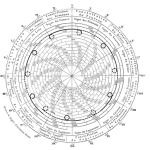Last Updated:
Sleeping in total darkness can disrupt melatonin production, which plays a crucial role in regulating the body’s biological clock. This disruption may slow metabolism, increase the risk of obesity, lower energy levels, and heighten stress
Research conducted in Japan found that sleeping in total darkness could lead to melatonin imbalance in some individuals. (News18 Hindi)
Many people find it difficult to sleep at night unless it’s pitch dark. While this is often believed to improve sleep quality, various studies have highlighted potential disadvantages associated with sleeping in total darkness. Here are some of these drawbacks.
According to Medical News Today, several studies have examined the effects of sleeping in complete darkness on health. Research conducted in Japan found that sleeping in total darkness could lead to melatonin imbalance in some individuals. This imbalance is linked to health issues such as obesity, depression, and other disorders. The study suggested that using dim lighting in the bedroom might benefit mental health and aid in weight management.
Sleeping in total darkness can disrupt melatonin production, which plays a crucial role in regulating the body’s biological clock. This disruption may slow metabolism, increase the risk of obesity, lower energy levels, and heighten stress. Incorporating dim lighting during sleep may help mitigate these issues.
The intensity of light also directly impacts sleep quality and overall health. Total darkness signals the brain to rest, but excessive darkness can interfere with bodily functions and may elevate the risk of diabetes. Researchers suggest that sleeping in dim lighting helps the body relax, reduces sleep disturbances, and positively influences mental well-being.
For optimal sleep, it is essential to create a balanced sleeping environment. Instead of using blackout curtains, consider incorporating dim lights in your bedroom. This approach not only enhances sleep quality but also helps prevent weight gain and other health-related problems. Maintaining balance is key to crafting a healthy and restorative sleep environment.








